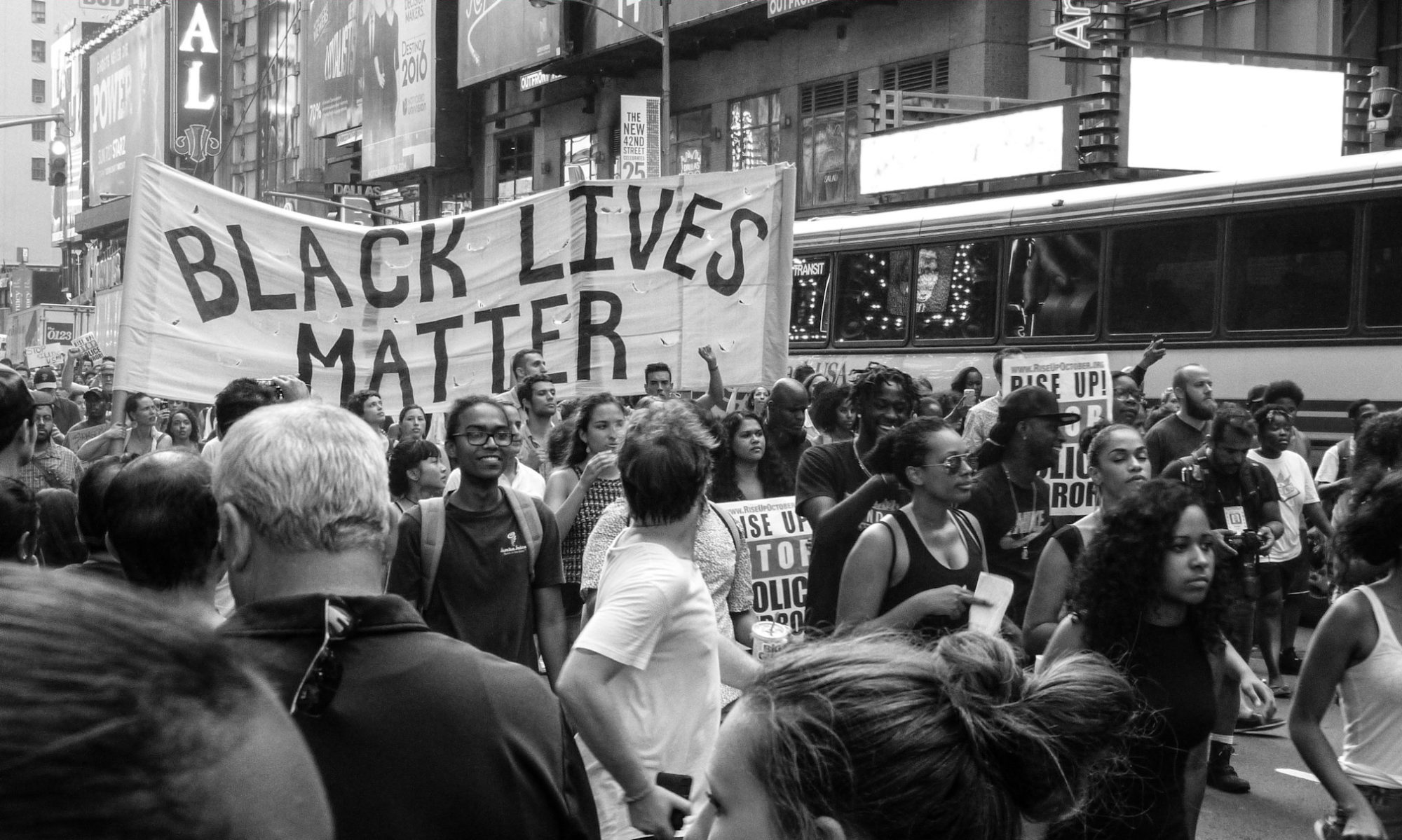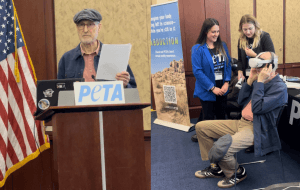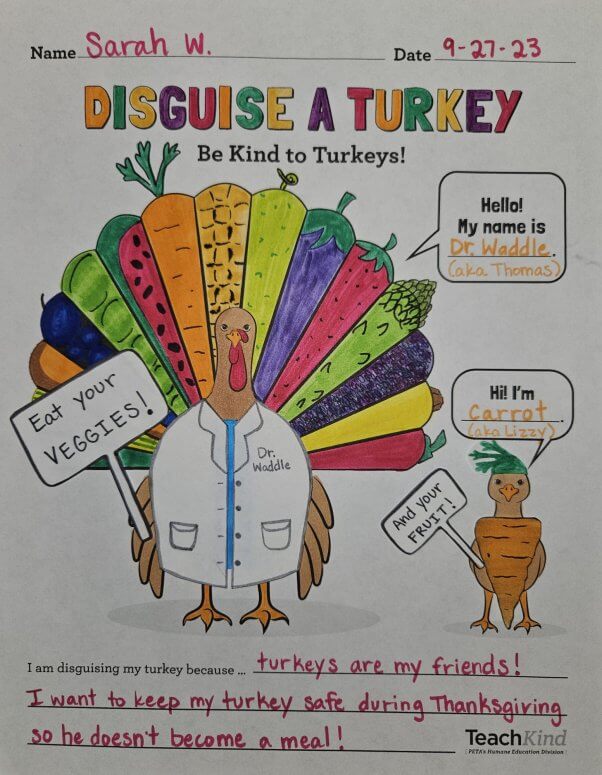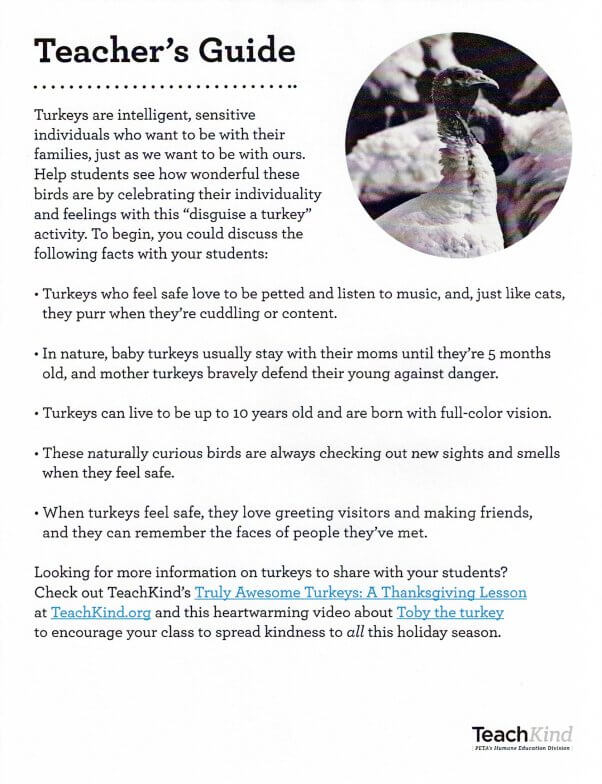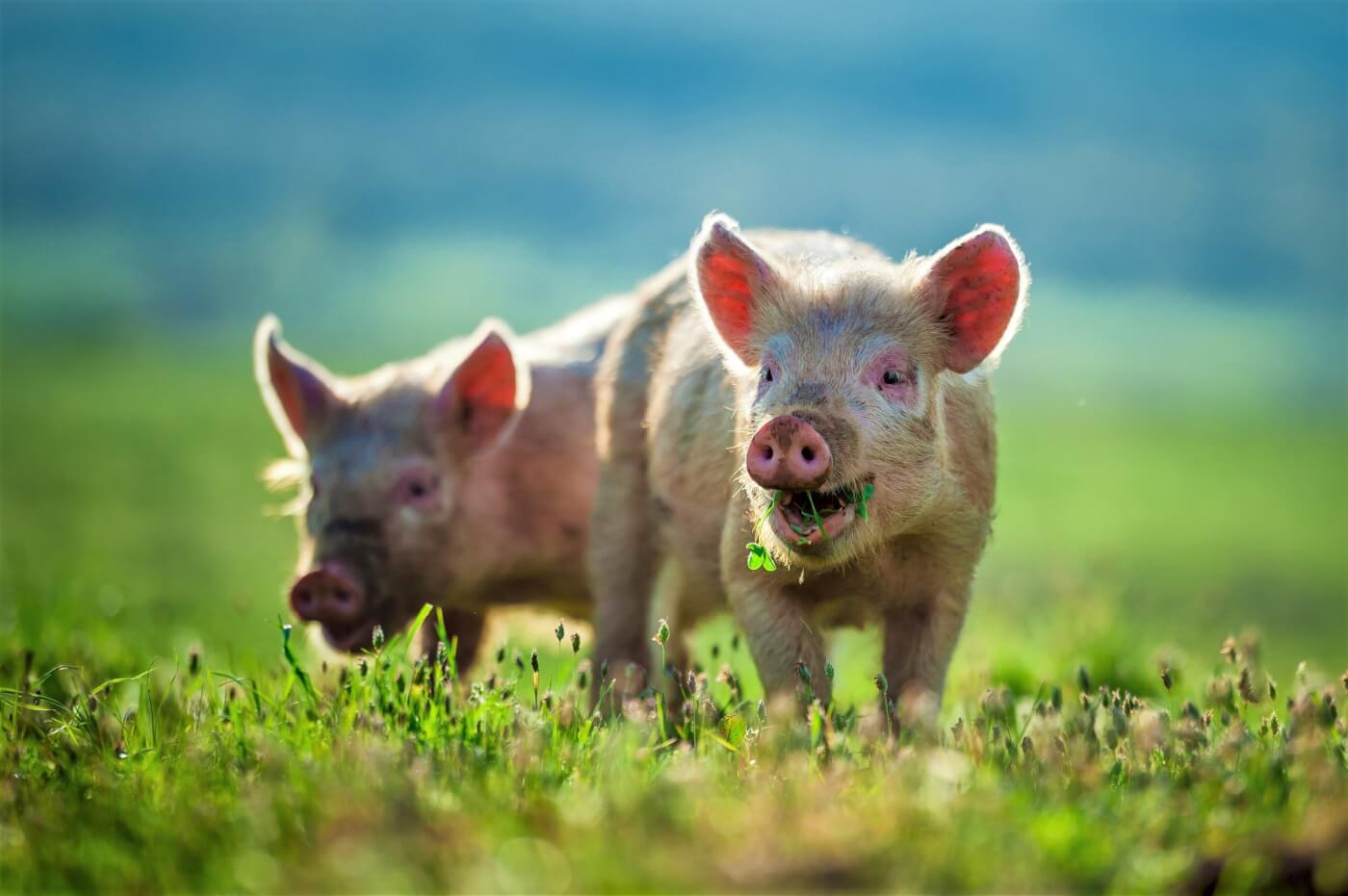Today, PETA Honorary Director James Cromwell joined experts to speak at a Congressional briefing sponsored by Rep. Brian Fitzpatrick (R-PA), co-chair of the Congressional Animal Protection Caucus, on the deadly and deceptive monkey-importation industry, which presents risks for contagious disease outbreaks, threatens endangered species, subjects monkeys to horrific experiments, and fails to move science forward in the U.S. Speakers included Dr. L. Syd M. Johnson, a State University of New York bioethicist; PETA primate scientist and former University of Washington monkey researcher Dr. Lisa Jones-Engel; and PETA neuroscientist and former National Institutes of Health (NIH) researcher Dr. Katherine Roe.
James Cromwell spoke during the congressional briefing and then took part in PETA’s Abduction virtual reality experience.
Every year, 20,000 to 30,000 monkeys are imported from Cambodia, Indonesia, Mauritius, and Vietnam to the U.S., where they’re confined to laboratory cages, mutilated, poisoned, starved, infected with painful diseases, and killed. This presents grave risks to the public, in addition to being cruel to the animals.
Speakers presented evidence on the following topics
- Disease risk: The number of monkeys coming into the U.S. carrying dangerous diseases transmissible to humans has increased in the last three years. A recent tuberculosis outbreak in a Michigan laboratory, which necessitated treatment for humans, was traced to monkeys imported from Mauritius.
- Monkey trafficking: The U.S. Department of Justice has indicted Cambodian officials for selling wild-caught monkeys as captive-bred, a violation of federal laws. Virtually every monkey importer in the U.S., including Charles River Laboratories, is currently under investigation for alleged violations of monkey-importation laws.
- Species under threat: The International Union for Conservation of Nature has elevated the status of long-tailed macaques, the most commonly imported species to the U.S., to “endangered” and cited the demand from laboratories as the primary cause for the species’ plummeting numbers.
- Domestic transport violations: State documents obtained by PETA reveal that monkeys are routinely trucked across the country without required veterinary exams, presenting a risk to human health.
- Animal welfare violations: Federally funded primate laboratories, including the seven national primate research centers, have received multiple violations stretching back years. Monkeys in U.S. laboratories have been administered the wrong medications, been denied adequate pain relief, been scalded to death in high-temperature cage washers, had gauze and other medical equipment left inside them, and died of starvation and dehydration, among other horrors.
- Failed science: Experiments on monkeys have failed to produce vaccines for HIV, tuberculosis, malaria, or other dreaded human illnesses.
“There are literally thousands of monkeys being torn from their families in Asia, confined in wooden boxes, transported for thousands of miles across country borders, and then confined again—this time in laboratory cages in the U.S.—and subjected to horrific and pointless procedures,” says Cromwell. “These animals must be protected—and Americans need to be reassured that the world’s biggest research funder, the National Institutes of Health, will use our taxes responsibly and not support pointless, cruel experiments on animals taken from their homes.”
The speakers called for the Centers for Disease Control and Prevention to halt the importation of monkeys; the implementation of PETA scientists’ Research Modernization Deal, which provides a strategy for replacing experiments on animals with superior, human-relevant research; and support for the Cease Animal Research Grants Overseas (CARGO) Act (HR 4757),which would prohibit NIH from funding experiments on monkeys and other animals in overseas laboratories.
PETA—whose motto reads, in part, that “animals are not ours to experiment on”—opposes speciesism, a human-supremacist worldview. For more information on PETA’s investigative newsgathering and reporting, please visit PETA.org, listen to The PETA Podcast, or follow the group on X (formerly Twitter), Facebook, or Instagram.
The post PETA and Honorary Director James Cromwell Host Congressional Briefing on Monkey Importation appeared first on PETA.
